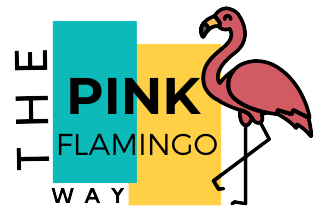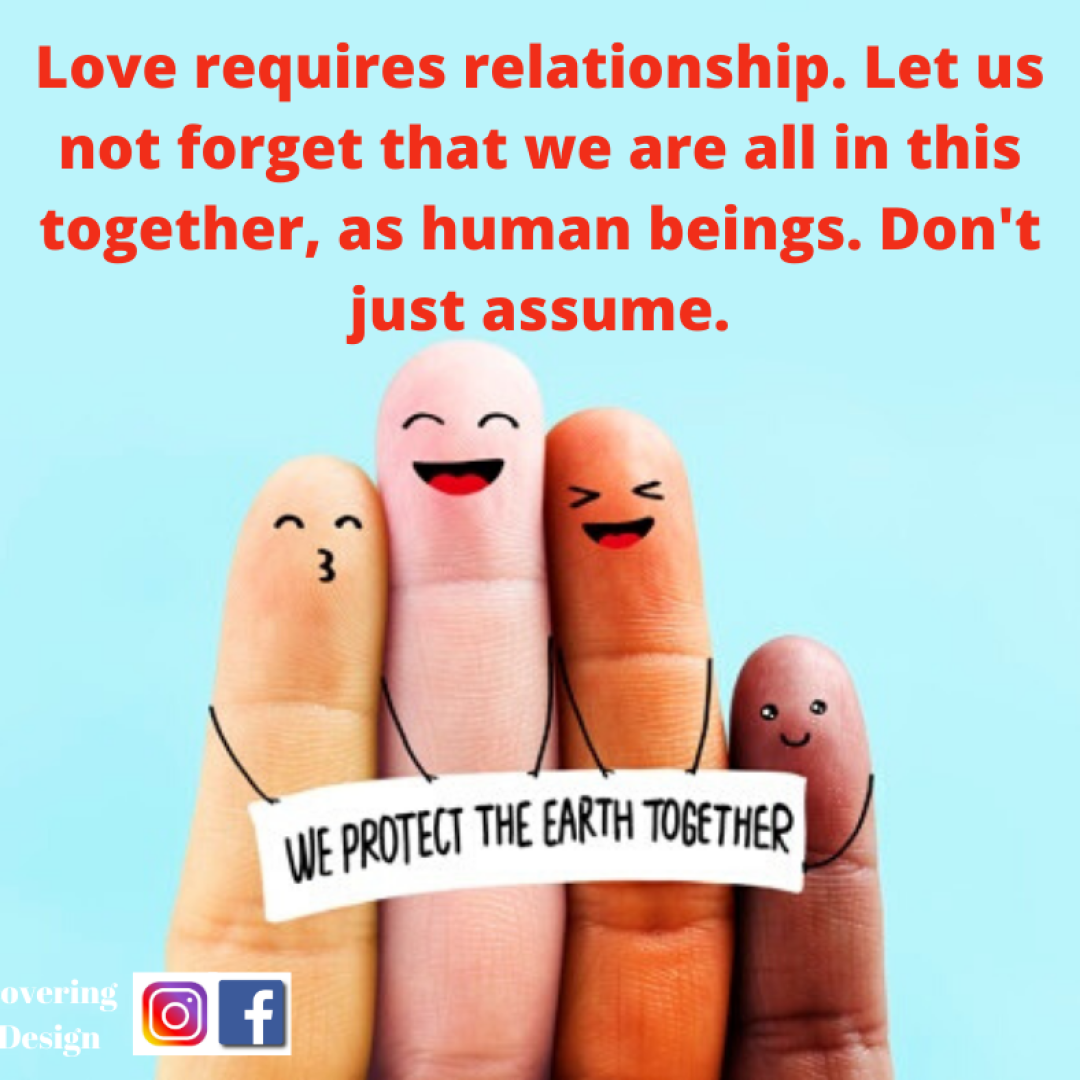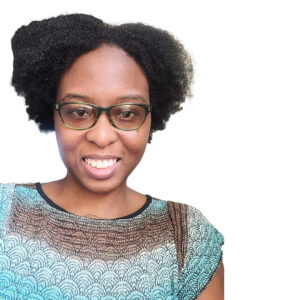
Our assumptions and biases have the ability to make us look like asses who make up entirely false narratives in our heads that cause us to mislabel and react negatively to others because of our own preconceived notions.
The Samaritan woman assumed that Jesus would want to have nothing to do with her because he was a Jew and their people had hated each other for hundreds of years. Had both allowed their inherited biases to rule, and Jesus had not been open to approaching her and she had not been receptive to his approach, she would have missed the opportunity for the salvation of herself and her neighbours.
A few years ago I sat before an unsmiling woman thinking “Man, this girl won’t even smile! She must hate me!” This assumptions about her dislike was based on one fact. I had everyone in that interview room eating out of the palm of my hands, except her. I later learned that it was just her personality and instead of disliking anyone, she had a kind streak a mile long and willingly stood up for others when she felt they were being dealt with unfairly. Had I allowed my assumptions to rule me, I would have missed out on having someone in my life who is one of my closest friends today.
Every day, for a month, I passed a man that I assumed was mad sitting on the side walk. One day the Lord told me to smile and say “good morning” as I passed every morning. My heart quivered in fear, given my fear of madmen which would generally have me dashing across the street whenever one came near.However, I was obedient until it became a ritual. He never once responded. One day, with a lot on my mind, I passed him without serving him my usual smile and greeting. To my shock, I heard him asking “Yuh don’t plan fi seh good morning today.” (Don’t you intend to say good morning today?) After that he and I never passed without greeting each other. On random occasions, he would stop me and just pour out his troubles. It didn’t matter that I didn’t understand what he was saying, I just made it a point of duty to connect and listen.
Recently, whilst grocery shopping, I stopped in the aisle beside a grumpy-looking old man. As I stood, I noticed that he seemed unsure as he compared multiple products. I felt and obeyed the urge to say “hi!” He looked at me and returned the greeting, smiling. He then asked my opinion. After recommending my favourite crackers, he stunned me: “I want to be like you.” I laughed and proclaimed that he was unique in his own way. We later met up again at the checkout counter when he got in line behind me. When he had to step away I found myself guarding his trolley without a second thought. When he got through before me, he turned to me and said goodbye, adding “Next time I come shopping I’ll definitely take my son with me and I hope to see you so I can make the connection.” I smiled and waved, thinking of the shame it would have been if I had missed that interaction because I chose to stay in my comfort zone and allowed myself to be ruled by my initial assumptions.

Although the above stories may not be in the same line for comparison as to what happened with George Floyd, one thing remains constant. These actions are all related to ingrained assumptions and biases.
I wonder what would have happened if that policeman had just put his assumptions and biases aside and tried to make a connection with George Floyd, instead of treating him less than a human being; deserving a knee in his neck as he pleaded for breath and his mother? I’m sure that story would have ended up so differently. I wonder what would have happened if that father and son had chosen to disregard their assumptions and thought of and treated Ahmaud Arbery as one of their neighbours; worthy of the same love they expected for themselves.
Every time I think of George Floyd or Ahmaud Arbery, I think of my black loved ones, the ones I will hold dear and anyone who have been seen as less than human beings and outsiders because of the colour of their skin or the fact that they are different. Every time I think of that policeman and that man and his son, I think of myself and anyone who has ever reacted negatively because of our biases and assumptions. I wondered what would have happen if, instead of choosing to become asses who stifled breathing with our assumptions, we chose to build connections and relationships based on love.

Love requires relationship. Let us not forget that we are all in this together, as human beings. #BlackLivesMatter, let the difference start with the organism, us. Let us not just assume. Let us aim at racial reconciliation.
By the way, check out the Transformation Church Relationship Goals Reloaded Series Part 6 message: “Racial Reconciliation“.
Thank you for stopping by and reading. What is one way you will try to reconcile racially this week? I would love to hear about your experience in the comments section, below. 🙂
Chañel
Let’s Connect by Design!
Don’t forget to hit the Like button and share your thoughts in the Comments Section below!
Do you have any discoveries that you would like to share? Would you like me to pray for and with you? Let’s Connect by Design through the Contact Form.

Please share it by clicking one of those Sharing Buttons below. And if you are interested in more, you should follow our Facebook page where we share more amazing discoveries.


